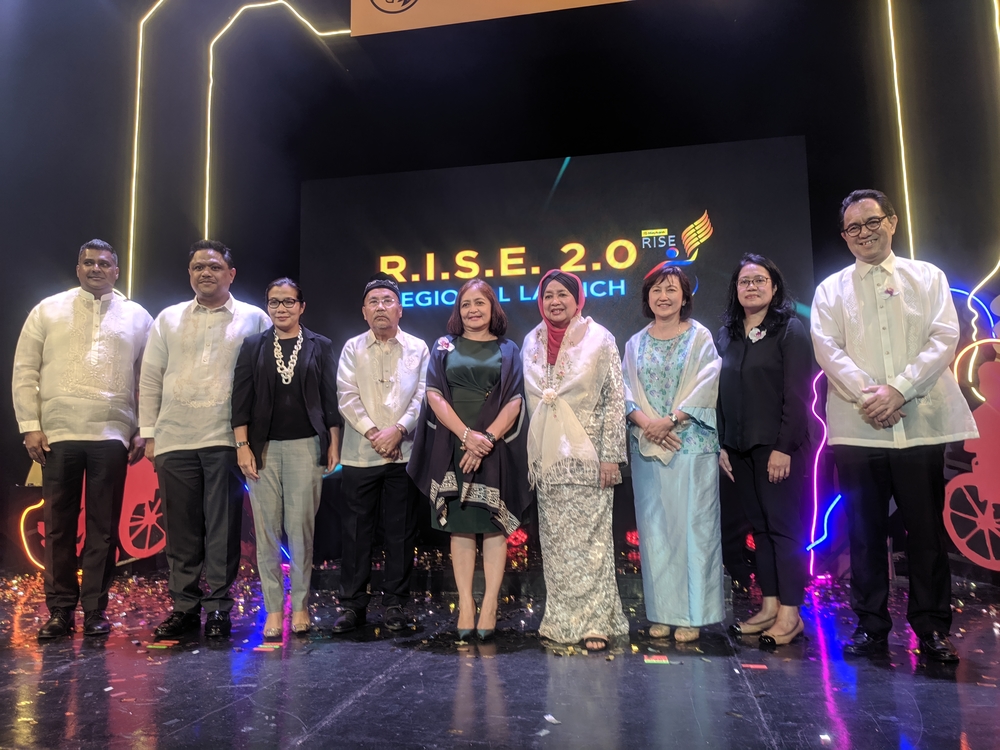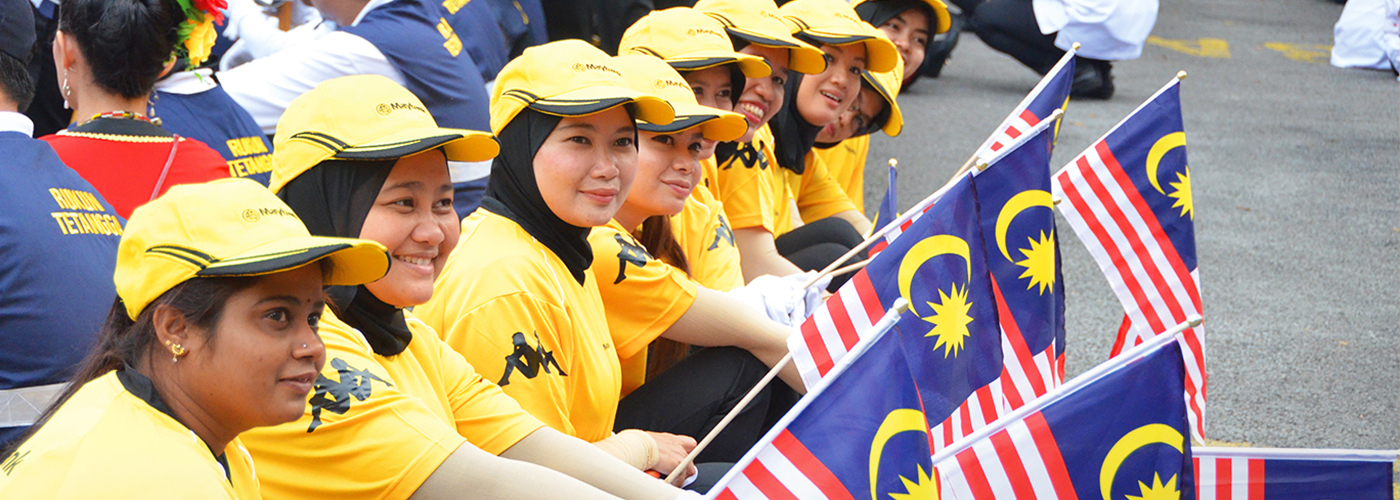
30 September 2019
Maybank expands entrepreneurship training for disadvantaged with R.I.S.E 2.0
Maybank launched Reach Independence & Sustainable Entrepreneurship (R.I.S.E) 2.0 today, the second phase of a five-year economic empowerment programme designed to support disadvantaged communities particularly Persons with Disabilities (PWDs).
The announcement of R.I.S.E 2.0 comes after the successful completion of the first phase of R.I.S.E which was introduced in 2014 covering Malaysia, Indonesia, the Philippines and Laos. It will now be expanded to Myanmar and Singapore, opening doors to further improve the lives of more than 17,000 communities by 2023.
The event was held at the Maybank Performing Arts Theatre in Bonifacio Global City Manila, and was graced by Ms Chuchi Fonacier, Deputy Governor, Bangko Sentral ng Pilipinas. Also present were Maybank and Maybank Foundation Chairman Datuk Mohaiyani Shamsudin, Maybank Philippines Chairman Ms Fauziah Hisham and Maybank Foundation CEO Mr Shahril Azuar Jimin.
In his speech, Shahril said that the R.I.S.E programme has seen exponential results in its first phase of implementation. To date, more than 6,000 beneficiaries from numerous underprivileged communities have increased their incomes significantly and become financially independent.
“R.I.S.E 2.0 will predominantly focus on helping and nurturing PWDs to compete in a sustainable manner in the current age of digitalisation. It is important that our communities, especially the underserved ones, are able to withstand the challenges in today’s volatile operating environment, as they cannot be left behind while the wider population continues to profit from the advancement in technology.”
Shahril added, “In ensuring the PWDs continue to benefit under R.I.S.E 2.0, Maybank will reach out to the under banked communities from rural areas to improve their access to banking services. This is part of the Bank’s mission to humanise financial services by supporting local business growth as well as strengthen financial inclusion in ASEAN.”
The R.I.S.E programme from the year 2014 to 2019 concluded with phenomenal results where 6,358 participants were impacted in the four countries where it was carried out. Out of these participants, 40% of those trained achieved an average monthly income increase of more than 350%. Additionally, most of the participants were able to become self-sufficient and continue to thrive in running their businesses years after the initial training.
“That this was achieved without any loans or financial help speaks volumes about the grit and resilience of the participants, and have reaffirmed our conviction that with guidance and knowledge, every human being has the ability to realise their fullest potential,” said Shahril.
The R.I.S.E programme consists of four major components starting off with a three day workshop on entrepreneurial and financial training. Participants will be exposed to various disciplines on implementation and application of business strategies as well as techniques on budgeting, cash flow management and resource planning. After the workshop, participants will be mentored for a period of between three to six months. During this phase, they will have guidance in starting up their business, troubleshooting on business processes and learn ways to drive sales and income growth. Reporting and tracking of their performance will follow, to ensure programme participants are able to record sustainable income increase. The beneficiaries will then have the opportunity to register for micro-financing facilities with Maybank to further expand their business. To date, R.I.S.E has positively impacted 2,551 participants in Malaysia, 2,269 in Indonesia, 1,292 in the Philippines and 246 in Laos.
R.I.S.E is one of Maybank Foundation’s flagship programmes carried out in partnership with social enterprise People Systems Consultancy (PSC). It is in line with the ASEAN Socio-Cultural Community (ASCC) Blueprint 2025 and United Nation’s Sustainable Development Goals (SDGs) in ASEAN.
Maybank Foundation was established in 2010 and actively supports community programmes under six key pillars namely Arts & Culture, Education, Community Empowerment, Environmental Diversity, Healthy Living and Disaster Relief.




